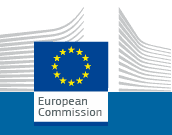Guidelines on FAIR Data Management in Horizon 2020
24/08/2016

The European Commission has released new guidelines on research data generated from Horizon2020 projects participating in the Open Research Data Pilot.
Background
The guidelines are intended to help the Horizon 2020 beneficiaries make their research data findable,accessible, interoperable and reusable (FAIR), to ensure it is soundly managed.
Good research data management is not a goal in itself, but rather the key conduit leading to knowledge discovery and innovation, and to subsequent data and knowledge integration and reuse.
The Commission is running a flexible pilot under Horizon 2020 called the Open Research Data Pilot (ORD pilot).
The ORD pilot aims to improve and maximise access to and re-use of research data generated by Horizon 2020 projects and takes into account the need to balance openness and protection of scientific information,commercialisation and Intellectual Property Rights (IPR), privacy concerns, security as well as data management and preservation questions.
Some Key changes
- As announced earlier, the pilot will be extended to cover all the thematic areas of Horizon2020 from 2017 onwards. The key principle remains: as open as possible, as closed as necessary
- A single DMP is to be produced per project, rather than one per dataset as previously.
- Researchers must work according to the principles of FAIR data (Findable, Accessible, Interoperable and Re-usable. There is a new (optional) template for DMPs which includes a section on FAIR data.
The Horizon 2020 FAIR Data Managaement Plan
The guidelines also provides the Horizon 2020 FAIR Data Management Plan template , which was designed to be applicable to any Horizon 2020 project that produces, collects or processes research data.
The structure of the template is a set of questions at that you should answer with a level of detail appropriate to the project. The following elements are included in the template, 1. Data Summary, 2. FAIR Data, 3.Allocation of resources, and 4, Data Security and 5. Ethical aspects
The FAIR Data Management Elements
The following items should be highlighted within the FAIR Data Management section:-
- Making data findable, including provisions for metadata
- Making data openly accessible
- Making data interoperable
- Increasing data reuse
The template does not inted to be a strict technical implementation of the FAIR principles, rather it is inspired by FAIR as a general concept. The FAIR princples are discussed here and were further explained in this article

